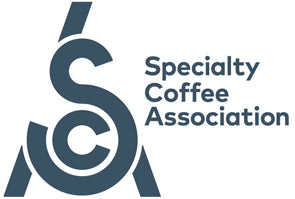
Today, 701 million people around the world don’t have access to clean water. The majority live in isolated, rural areas – the same areas growing our coffee.
Coffee is a water-intensive crop with a large water footprint. Up to 840L of water is needed to make one 750ml pot of coffee. That’s more than tea, sugar, wheat, and barley.
While we enjoy the purest filtered water in our coffee, the communities at the end of its supply chain face a water crisis.
This is why it’s our mission to unite the coffee industry and coffee consumers to give back to the communities growing our coffee by investing in sustainable clean water, sanitation and hygiene projects.
Here is an example of a project that the charity have completed to enable you to understand further what they do.
Jabi Tehanan Woreda is a coffee growing district in the Amhara region of Ethiopia with one of the lowest levels of clean water, sanitation and hygiene practices in the area. Only 67% of the population have access to water and 50% have access to sanitation.
Climate change has deteriorated the WASH coverage in the area, affecting both the water quality and quantity.
Working in partnership with the local government, our partner WaterAid, have rebuilt the multi-village water system to its full capacity, using their local expertise and experience to ensure that it gives sustainable and long-term water provision.
Through this project, 10,622 people have gained access to clean drinking water and 21,234 have gained access to better sanitation & hygiene, improving their health and life chances.
What we did
Between 2018 and 2022, this project has:
-
Provided 10,662 people with access to clean water and sanitation
-
Indirectly supported a further 21,324 people to receive access to WASH. (for example - people receiving support from government WASH intervention as a result of WaterAid’s influencing and system strengthening)
-
Brought clean water to three kebeles, including two schools and two health facilities
-
Constructed two 100m3 reservoirs
-
Built and rehabilitated 20 water points at schools and in public spaces
-
Built and rehabilitated 3 toilet blocks in two schools and one health centre, which are now gender segregated
-
Increased knowledge, skills and awareness in communities about the importance of prioritising water, sanitation and hygiene in community development plans
-
Raised awareness and promoted hygiene behaviour change through promotion and education work. For example, running menstrual hygiene management education sessions in schools
Project statistics
Start Date: 2018
Status: Completed, March 2022
Community: Jabi Tehnan
people reached: 10,622
delivery Partner: WaterAid
About Ethiopia
94,100,00 Population
61% of rural lack access to water
92% of rural lack access to sanitation
29.6% live below the poverty line
[This text is directly from Project Waterfalls site]

